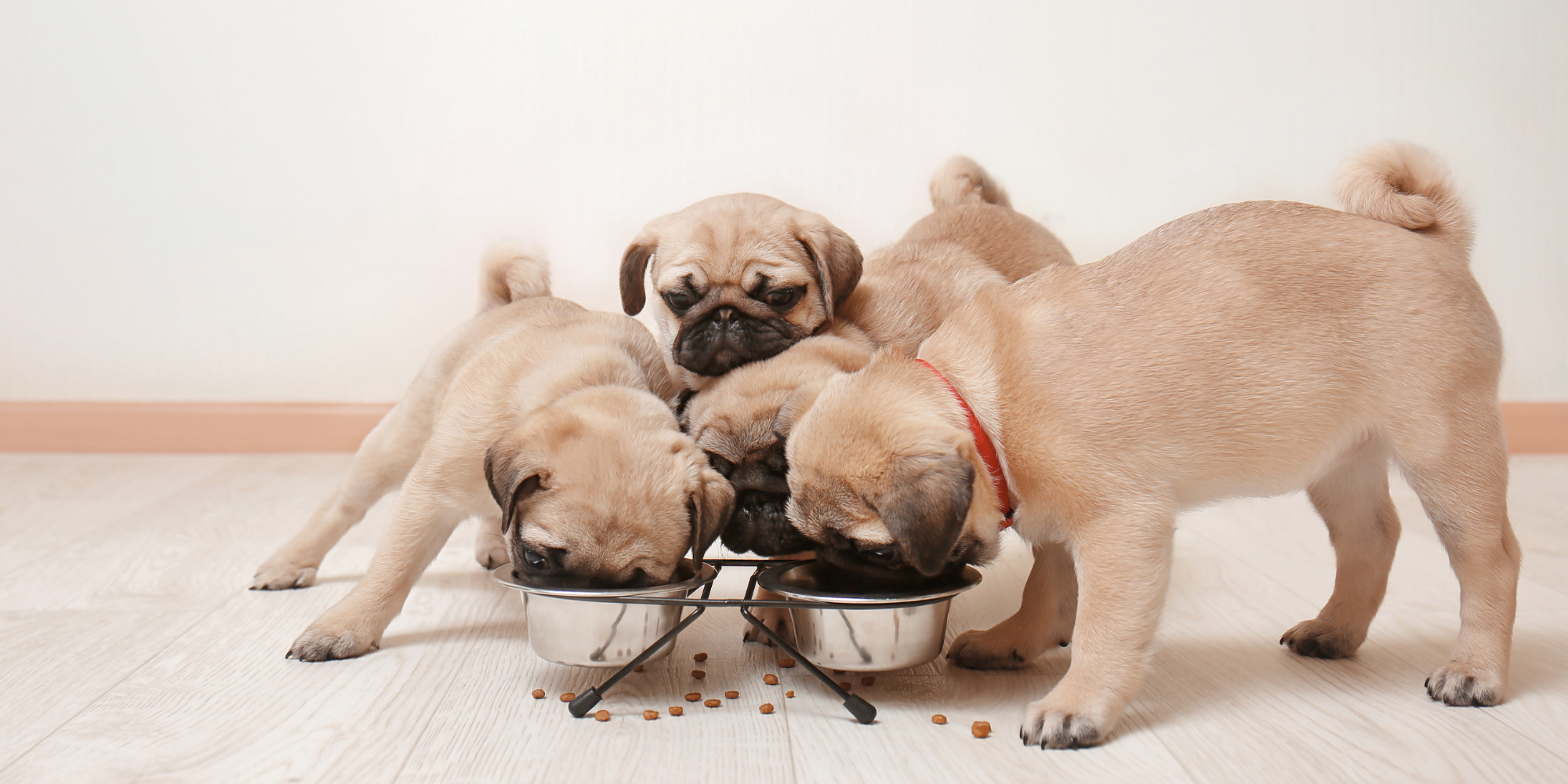Introduction
Discover the Best Diet for Pug to ensure your furry friend stays healthy and happy
- Pugs have unique dietary needs due to their size and brachycephalic nature
- Learn essential nutrition tips to maintain your Pug's ideal weight and energy levels
- Find out which food recommendations will help prevent common Pug health issues
- Understand the importance of balanced meals for your Pug's overall well-being
- Explore the best feeding practices to keep your Pug thriving and full of life
1. Understanding Pug Dietary Needs
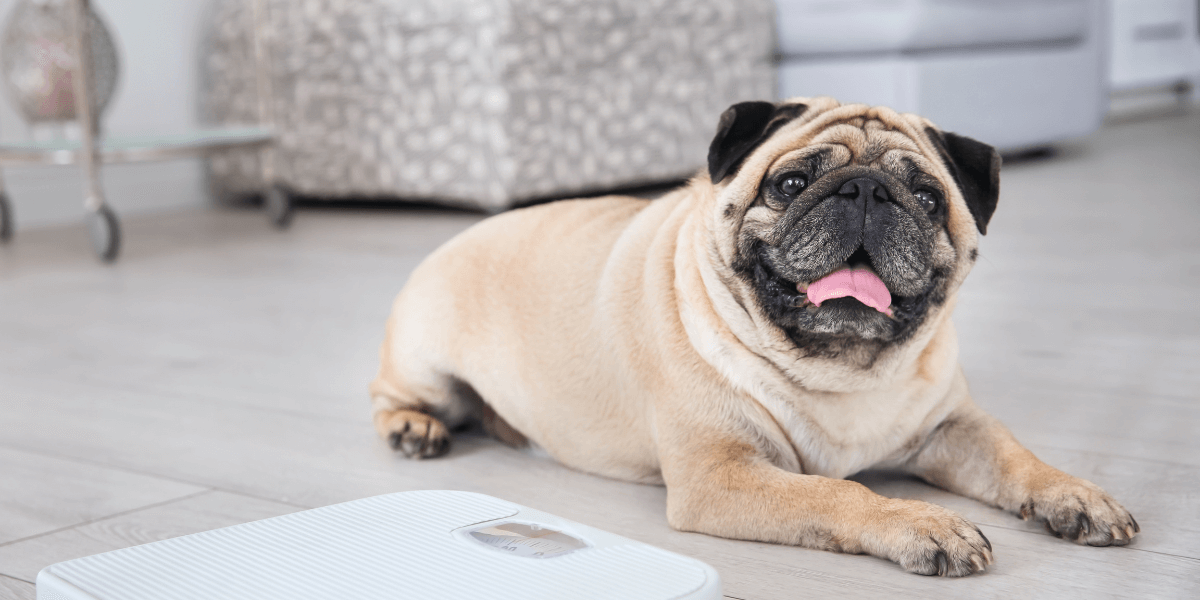
Here's a breakdown of what you need to consider:
Caloric Intake
- Adult Pugs: Typically require around 40 calories per pound of body weight
- Puppies: Need more calories to support growth and development
- Senior Pugs: Require fewer calories, approximately 30-35 per pound
Nutrient Balance
- Protein: Look for foods with at least 18-22% protein
- Fats: Provide energy and support skin and coat health, aim for 8-10% fat content
- Carbohydrates: Offer energy but should be balanced to prevent obesity
- Vitamins and Minerals: Ensure the food is fortified with essential nutrients
2. Choosing the Right Dog Food
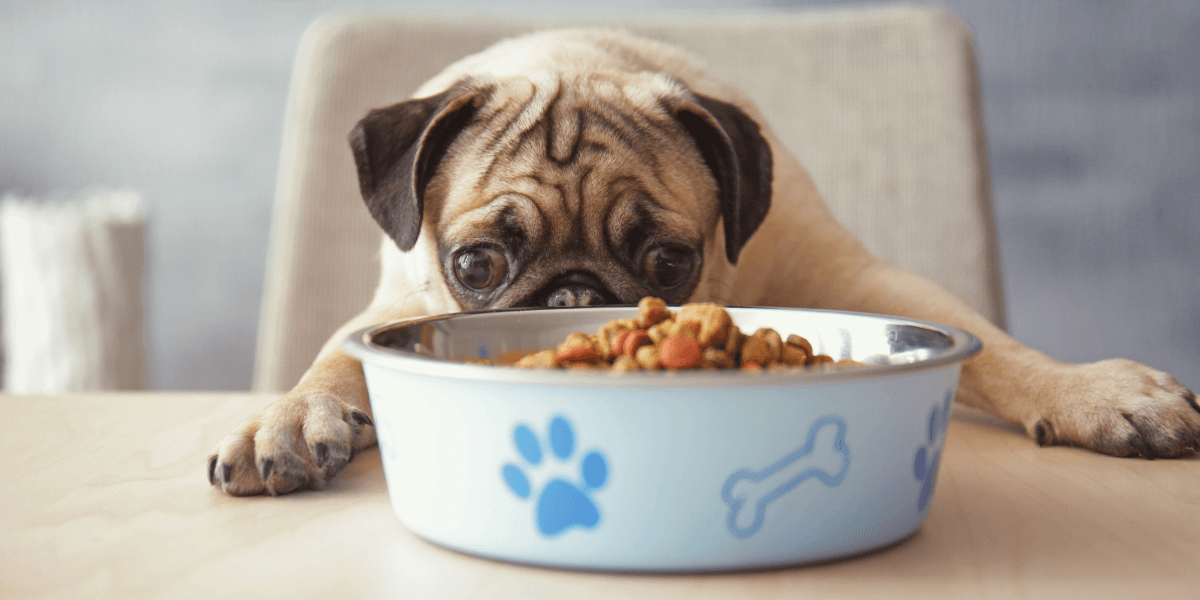
Here are some tips:
Dry Kibble vs. Wet Food
- Dry Kibble: Helps with dental health by reducing plaque buildup
- Wet Food: Higher moisture content, beneficial for pugs with urinary issues
Grain-Free vs. Grain-Inclusive
- Grain-Free: Often recommended for dogs with allergies or sensitivities
- Grain-Inclusive: Can provide beneficial nutrients and fiber
Nutritional Needs
- Protein: Essential for muscle maintenance and overall health
- Fats: Provide energy and support a healthy coat
- Vitamins and Minerals: Ensure balanced nutrition and support immune function
Quality Ingredients
- Look for foods with real meat as the first ingredient
- Avoid foods with fillers, artificial colors, and preservatives
3. Homemade vs. Commercial Diets
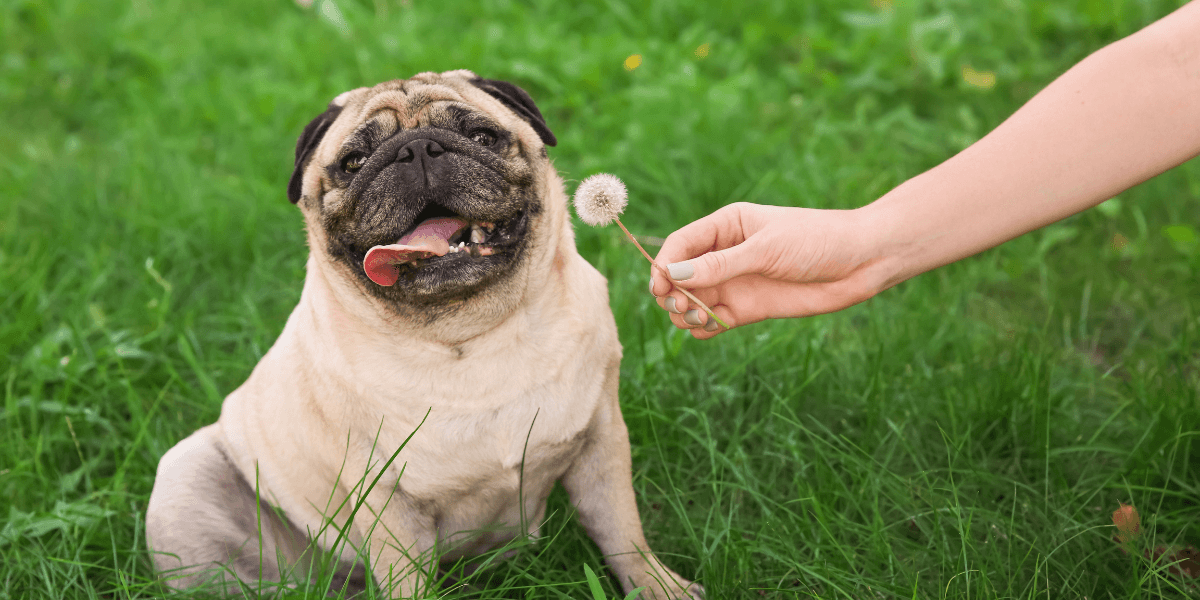
Deciding between homemade and commercial diets can be challenging.
Homemade Diets
- Pros: Complete control over ingredients, can cater to specific dietary needs
- Cons: Time-consuming, requires careful planning to ensure nutritional balance
- Food Safety: Requires diligence in handling and cooking to avoid contamination
Commercial Diets
- Pros: Convenient, formulated to meet nutritional standards
- Cons: May contain unwanted additives or lower-quality ingredients
- Variety: Wide range of options available to suit different needs and budgets
4. Common Dietary Issues in Pugs
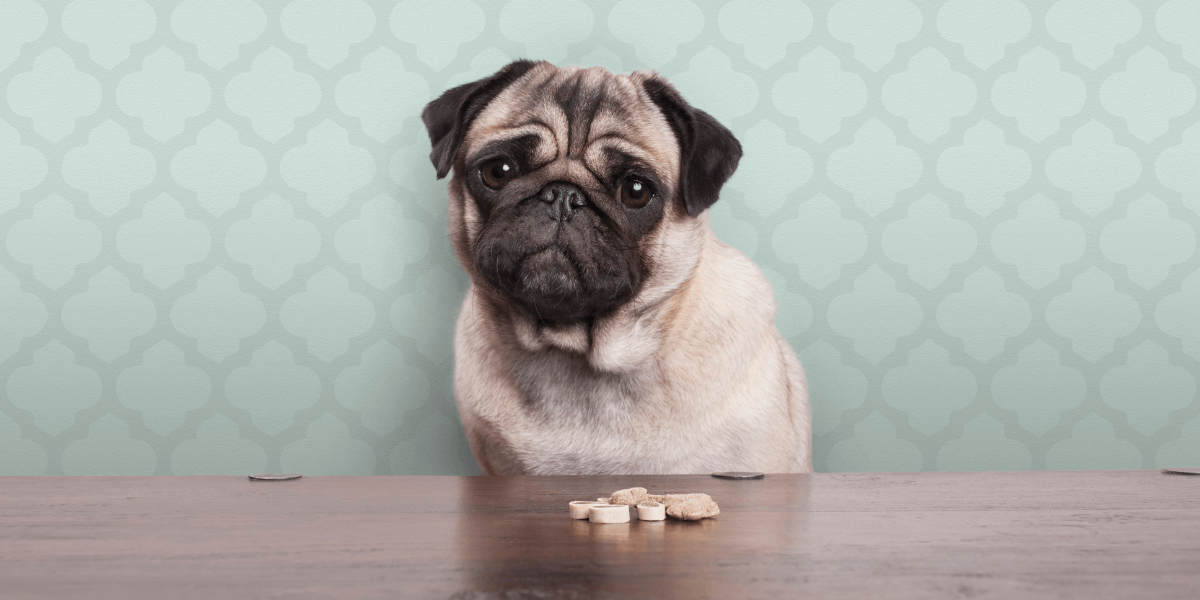
Pugs are prone to certain dietary issues due to their breed characteristics:
Obesity
- Prevention: Monitor portion sizes, avoid high-calorie treats, and ensure regular exercise
- Signs: Excess weight, difficulty breathing, reduced activity levels
Food Allergies
- Symptoms: Itchy skin, ear infections, gastrointestinal issues
- Common Allergens: Beef, dairy, chicken, wheat
- Solution: Try a limited-ingredient diet or hypoallergenic food
Sensitive Stomach
- Prevention: Feed small, frequent meals, avoid sudden diet changes
- Signs: Vomiting, diarrhea, loss of appetite
- Solution: Choose easily digestible food, consult your vet for a tailored diet
Learn how proper nutrition can help prevent hip dysplasia in your Pug.
5. Best Food Recommendations for Pugs
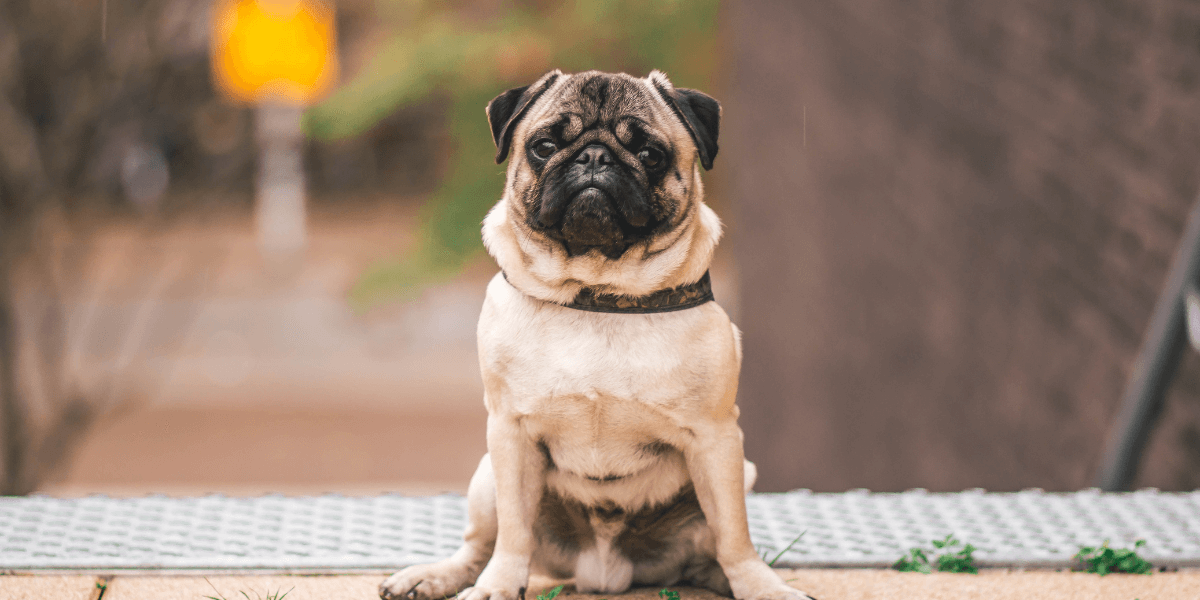
Here are some top food recommendations for pugs, considering their unique needs:
Dry Kibble
- Royal Canin Pug Adult Dry Dog Food: Formulated specifically for pugs, and digestion
- Hill's Science Diet Adult Small Paws: High-quality protein, promotes healthy weight
- Blue Buffalo Life Protection Formula Small Breed: Real meat first ingredient
- Purina Pro Plan Savor Adult Shredded Blend: Combines kibble and shredded pieces
Wet Food
- Wellness CORE Grain-Free Small Breed: High protein, supports healthy skin
- Merrick Lil' Plates Grain-Free: High-quality ingredients, and added vitamins
- Nutro Ultra Grain-Free Small Breed: Includes superfoods for balanced nutrition
6. Feeding Schedule and Portion Control
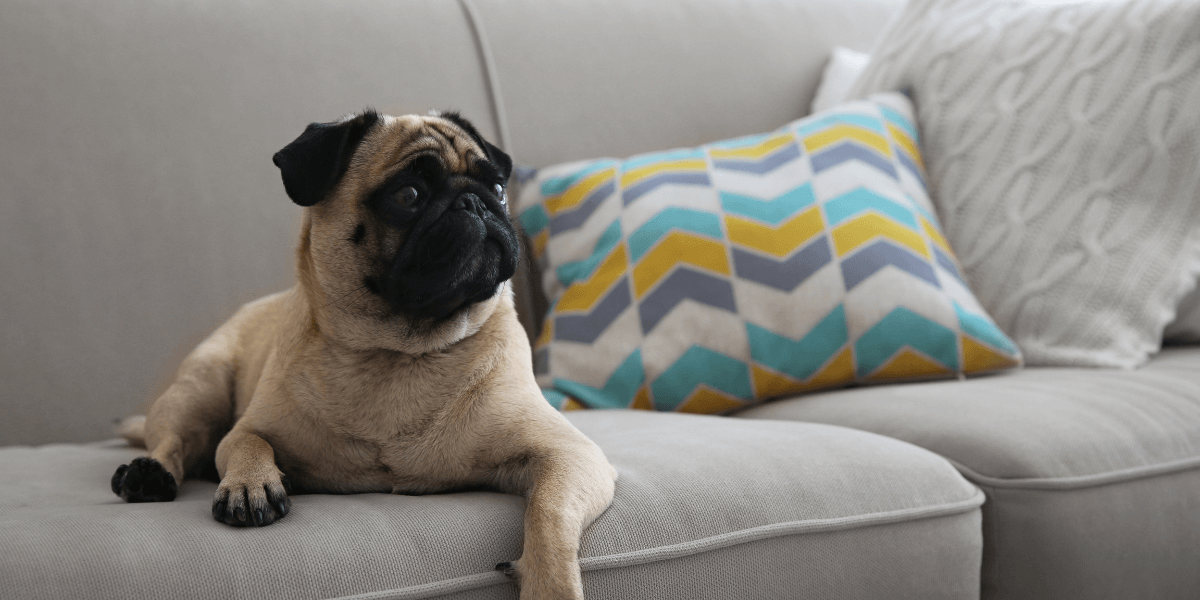
Maintaining a consistent feeding schedule and proper portion control is vital:
Feeding Schedule
- Puppies: 3-4 times a day
- Adults: 2 times a day
- Seniors: 2 times a day, with reduced portions if less active
Establish a consistent feeding schedule to train your Pug effectively.
7. Supplementing Your Pug’s Diet
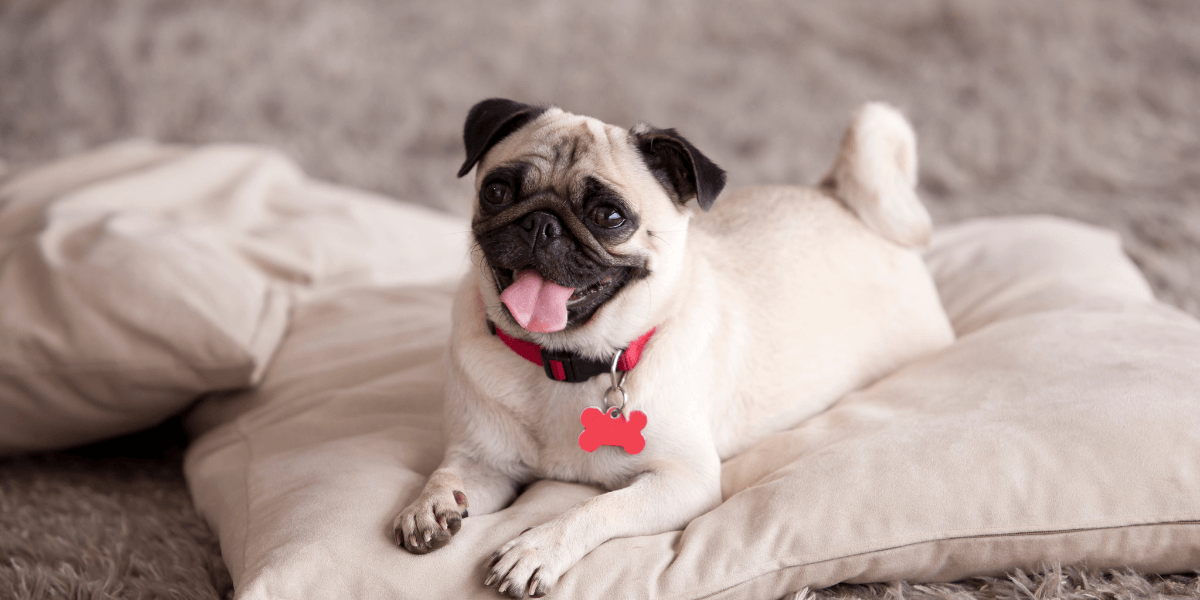
In addition to a balanced diet, supplements can support your pug's health:
Common Supplements
- Omega-3 Fatty Acids: Promote skin and coat health, reduce inflammation
- Glucosamine and Chondroitin: Support joint health, especially in older pugs
- Vitamin E: Supports immune function and skin health, acts as an antioxidant
- Fish Oil: Enhances brain development, improves skin and coat condition
- Pumpkin: Helps regulate digestion, provides a good source of fiber
- Probiotics: Aid digestion and boost immune health
Enhance your Pug's health with the right supplements.
FAQs
1. What is the best diet for Pug?
- A balanced diet with quality protein, fats, and carbs
2. How often should I feed my Pug?
- Feed adult Pugs twice a day
3. Can Pugs eat human food?
- Some are safe, but avoid toxic foods like chocolate
4. Is dry or wet food better for Pugs?
- Both can be good; consult your vet for specific advice
5. What supplements do Pugs need?
- Omega-3s, glucosamine, and probiotics can be beneficial
6. Can Pugs be on a grain-free diet?
- Yes, but ensure it meets their nutritional needs
7. How to choose the Best Diet for Pug?
- Look for high-quality ingredients and consult your vet
Conclusion
- Providing the Best Diet for Pug ensures a longer, healthier life for your furry friend
- Remember, balanced nutrition is key to maintaining your Pug's overall well-being
- Choose high-quality food options to prevent common Pug health issues
- Monitor portion sizes to keep your Pug at a healthy weight
- Follow these tips and food recommendations for the Best Diet for Pug
Please share it with other pug owners and leave a comment below!
References
For more information on The Best Diet for Pug, check:
- Ideal Diet for Pugs – The Ultimate Pug Feeding Guide
- Foods Pugs Can and Can't Eat? The Ultimate Food Guide for Dogs
- Hip Dysplasia in Dogs: Causes, Symptoms, and Treatments
- Orthopedic Dog Beds for Large Dogs: A Comprehensive Guide
- The Benefits of Feeding a Raw Diet to Your Pug
- Orthopedic Dog Beds: Help for Senior Dog Arthritis?
Thank you!

